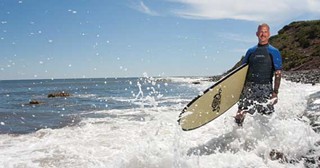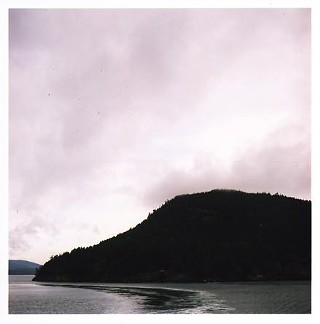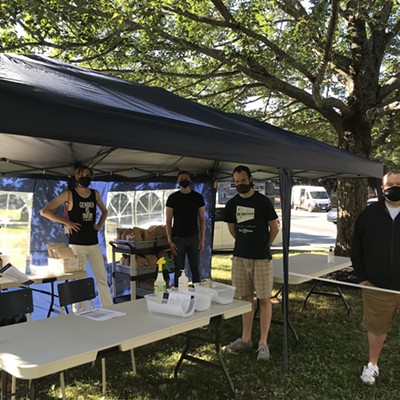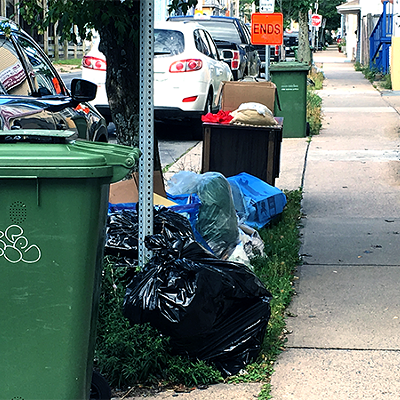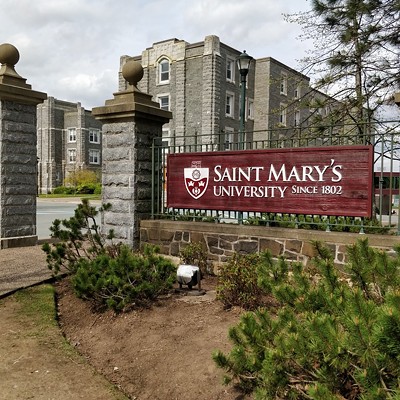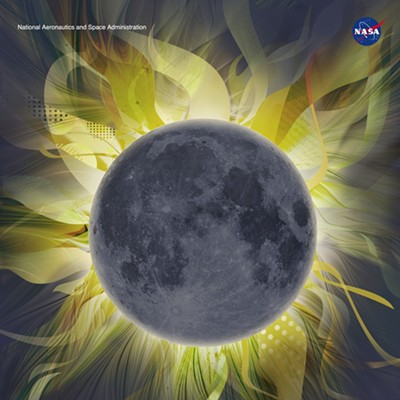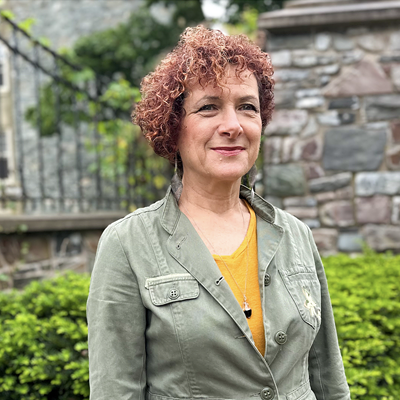Glen Hougan Design, NSCAD
"I'm not just in making stuff, I'm interested in making stuff happen," says Hougan, over the phone from Michigan, where he's both on vacation at a cottage and working with furniture design companies. Hougan has done work with design for senior citizens and is probably best known for his "Empathy Suit," a suit that simulates an elderly body. He teaches product design, including a class called Design for an Aging Population. His work with design for the elderly centres around ageism: "A younger generation saying, 'OK, they just want something functional, they don't care about aesthetics.'"
Hougan's students work with local companies and communities. "A lot of times when you're at school, it doesn't go beyond the borders of the school. I'm interested in creating opportunities. Design in the past has been a little bit insular---collaborations help others look at design in a different way."
One class last year worked with the geography department at Saint Mary's University, creating kits that non-scientists could use to monitor waterways, a project for which they received government funding. Other projects include designing a blueprint for an urban chicken coop to alter the public's perception of keeping chickens in the city, and an upcoming project looking at ways to redesign stairwells in office buildings so that people actually use them.
"A lot of problems in the community are design problems, I think a lot of problems can be solved with design," says Hougan.
Meredith Ralston Political Science and Women's Studies, Mount Saint Vincent University
Ralston came from a "completely academic background---no film or art background at all," but makes documentaries on sex work and tourism. She gets her students involved with research and speaking in her films, and teaches classes in theory, world issues, and gender and international relations.
"One of my favourites is my Women in Politics class," she says. "I get women politicians from the city to come in and talk. With every class I ask [my students], 'Why haven't you run [for office]?' Besides age---even if they're only 19-20 years old, it brings up the issues---family, work---that prevent women from running."
Ralston's first documentary Hope in Heaven looked at sex tourism through the life of one sex worker in the Philippines. She did her PhD research in prostitution after working at Adsum House shelter, and worked on the documentary with a colleague of Filipino background. She calls Hope in Heaven "a very negative look at sex tourism and prostitution," and is working on a new documentary called Selling Sex Globally, which looks at sex work around the world. Having spoken with sex workers in Halifax and elsewhere in North America, Ralston is trying to take a more positive view of people who choose to be sex workers, but also wants to look into the issue of women as sex tourists in the developing world.
Chris Helland Sociology, Dalhousie University
Helland teaches classes on the sociology of religion. His favourite course is a class called Goblins, Ghosts, Gods and Gurus, an anthropological study of the supernatural. "It's just a lot of fun," he says. "I get students who are in international development and working around the world. A lot of people don't realize how powerful religion is, it's important to understand the role religion plays in different communities."
Helland's own research work is investigating how religions around the world are entering the digital era and using the internet to reach out to followers. He speaks enthusiastically about "wired temples" in India: "People can log in from anywhere in the world, can watch ceremonies, have rites performed."
"We're looking at what it means to be able to log in to some of the most sacred places on the planet. A lot of pilgrimage sites are becoming wired...people seem to want to be able to access these site through the internet." Helland began his research doing his PhD between 1999 and 2004. "This was still very new, it was a good opportunity. I liked doing a lot of online stuff, gaming, et cetera---it's a good tool for communicating. Now I'm one of the top people in the field because I got in early."
Jonathan Fowler Archaeology, Saint Mary's University
Fowler's students are doing something completely different with a church: trying to find it. Since 2001, Fowler has been running the Grand Pré Archaeological Field School, which each summer takes students up to the former Acadian settlement of Grand Pré, near Wolfville. They're looking for the site of the parish church where the Acadian deportations began in 1755.
"After I finished my master's I was knocking around the Valley digging up holes," Fowler says, "so it started as an extension of my own research." The goals of the project are research, the educational aspect of the field school, and public outreach to the tourists at the site.
Besides the field school, he's most excited about a new course, Archaeology of Halifax, which ran for the first time last fall. "I think of Halifax as one big archaeological site," he says. "We often walk through the city without considering all the different stories written into the fabric of the city."

